Conservation technology is already transforming our understanding of climate change's impacts on key environments and species around the world, allowing us to monitor populations and their changing ranges, observe habitat destruction and events like coral bleaching over time, and study the aftermath of major climate disasters like bushfires.
Because climate change is a global challenge shared by all of us, with no species, habitat, or continent completely untouched by its impacts, it's more important than ever to unite the conservation tech users and makers who are already gathering critical data and forming innovative ideas to help us meet these challenges.
Whatever conservation technology you work with, and whatever your expertise may be, there is a place for you in the fight against climate change. This group is a place to brainstorm and collaborate, share experiences and commiserate about the challenges ahead, find reasons to be optimistic about technology's role in this fight, and hopefully spark ideas that can make a positive impact for the species and habitats that we protect.
Wondering how to get started in this group? Here are some examples of topics to kick things off:
- Do you have a case study or project update related to climate change impacts? (For example, have your study species' migratory patterns changed because of changing weather patterns? Did your Audiomoths or camera traps capture data on a climate-driven disaster? Have challenges like melting sea ice altered your research timelines or made it more difficult to study your species?)
- Do you have a question about how your expertise could fit into innovating climate change solutions? Or do you have data to share that could help someone else understand climate change impacts or address challenges?
- Do you have an innovative idea that could help combat climate change, but need input or skills from other members with expertise in different areas or with different tools?
- Do you have a great resource to share that could help other members learn something new about climate change technology?
This group is new to the WILDLABS platform and set to grow - we can't wait to see what resources you'll share, what projects you'll start, and what solutions you'll find together!
No showcases have been added to this group yet.
Stop The Desert
Founder of Stop The Desert, leading global efforts in regenerative agriculture, sustainable travel, and inclusive development.

- 0 Resources
- 3 Discussions
- 8 Groups
WILDLABS & Wildlife Conservation Society (WCS)
I'm the Bioacoustics Research Analyst at WILDLABS. I'm a marine biologist with particular interest in the acoustics behavior of cetaceans. I'm also a backend web developer, hoping to use technology to improve wildlife conservation efforts.





- 40 Resources
- 38 Discussions
- 33 Groups
- @BAMBII24
- | She/HER
A public health professional and sustainability strategist focused on genetic based nutrition and biodiversity conservation in Africa.
- 0 Resources
- 0 Discussions
- 3 Groups
- @TaliaSpeaker
- | She/her
WILDLABS & World Wide Fund for Nature/ World Wildlife Fund (WWF)
I'm the Executive Manager of WILDLABS at WWF

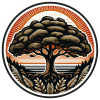

- 23 Resources
- 64 Discussions
- 31 Groups
- @CourtneyShuert
- | she/her
I am a behavioural ecologist and eco-physiologist interested in individual differences in marine mammals and other predators



- 0 Resources
- 12 Discussions
- 10 Groups
- @HRees
- | Him/His
WILDLABS & Fauna & Flora
WILDLABS - Programme Development Manager, keen interest in bats, hyenas and tech!





- 15 Resources
- 14 Discussions
- 6 Groups
WILDLABS & Fauna & Flora
I'm the Platform and Community Support Project Officer at WILDLABS! Speak to me if you have any inquiries about using the WILDLABS Platform or AI for Conservation: Office Hours.



- 30 Resources
- 41 Discussions
- 6 Groups
- @joemuise
- | He/Him
I am a high school physics teacher who is always looking for interesting ways to engage students. This sometimes spills over to other fields where I can find applications of physics. I am currently working with a scientist on wavelength-specific light interactions with insects


- 0 Resources
- 4 Discussions
- 5 Groups
- 0 Resources
- 0 Discussions
- 10 Groups
Wildlife photographer with a focus on conservation. Collaborating with conservation projects around the world.
- 0 Resources
- 0 Discussions
- 6 Groups
I created Snappy Mapper to make gathering geospatial data more accessible for everyone.

- 0 Resources
- 5 Discussions
- 12 Groups
Fauna & Flora
Remote Sensing Scientist, Conservation Technology & Nature Markets @ Fauna & Flora - WILDLABS Geospatial Group Co-Lead



- 42 Resources
- 49 Discussions
- 9 Groups
Making waves in wetland conservation: Explore the outcomes and insights from Ramsar COP15, a premier global event on wetland protection and sustainability
10 August 2025
The AI for Climate Resilience Program is a new initiative by Klarna that aims to support pioneering projects that leverage artificial intelligence for climate adaptation in underserved, climate-vulnerable regions.
6 August 2025
Link
The RCoE Geoportal provides comprehensive forest datasets that can help governments, researchers, and conservationists make informed decisions. From deforestation trends to forest cover analysis, these datasets offer...
5 August 2025
Earth Blox is growing — discover roles where your skills can help organisations make nature and sustainability part of everyday decisions.
4 July 2025
At University of Victoria
2 July 2025
La Universidad de Ingeniería y Tecnología (UTEC) está buscando cubrir nuevas vacantes en su Instituto Amazónico de Investigación para la Sostenibilidad (ASRI).
12 June 2025
Fires in Serengeti and Masai Mara National Parks have burned massive areas this year. With Google Earth Engine, it's possible to quantify burn severity using the normalized burn ratio function, then calculate the total...
29 April 2025
If, like me, you are curious about the broad impact that the 2025 tariffs may have on sustainability and green energy progress then this article by Evelyne Hoffman offers an in-depth analysis of the short and long-term...
7 April 2025
Funding
I have been a bit distracted the past months by my move from Costa Rica to Spain ( all went well, thank you, I just miss the rain forest and the Ticos ) and have to catch up on funding calls. Because I still have little...
28 March 2025
Funding
The AI Weather Quest, organised by the European Centre for Medium-Range Weather Forecasts (ECMWF), is an ambitious international competition designed to harness artificial intelligence (AI) and machine learning (ML) in...
25 March 2025
Funding
The Compute for Climate Fellowship is a global R&D funding program that empowers climate tech startups to leverage advanced cloud computing and AI in the fight against climate change.
22 March 2025
September 2025
event
event
June 2025
April 2025
event
event
event
February 2025
50 Products
0 R&D Projects
43 Organisations
Recently updated products
Recently updated organisations
| Description | Activity | Replies | Groups | Updated |
|---|---|---|---|---|
| Hi Elsa, We have used InVEST for a pollinator project we supported (the crop pollination model - details here), and looking to using it more for marine and coastal... |
|
Geospatial, Software Development, Climate Change, Funding and Finance, Marine Conservation, Open Source Solutions | 5 days ago | |
| Would be interested to learn more! What data, software and tools are you using to build your models? |
|
Climate Change, Geospatial | 1 week ago | |
| Support the Cartographer Cause! Hi there,I am on a mission to empower children and communities through maps, GIS — helping people better... |
|
Climate Change, Community Base, Conservation Tech Training and Education, East Africa Community, Geospatial | 1 month 2 weeks ago | |
| Hi WILDLABS Community! I have started mapping the project for the Gulf of America Dead Zone and here are some photos of the progress. In the last picture, I have... |
|
Climate Change, Marine Conservation, Wildlife Crime | 1 month 3 weeks ago | |
| Thank you for your reply, ChadI meant 10 as a whole, indeed. Perhaps you see your post in one group, but since it is tagged for all groups, I assumed you meant 10 in total.In your... |
|
Acoustics, AI for Conservation, Animal Movement, Camera Traps, Citizen Science, Climate Change, Community Base, Connectivity, Drones, eDNA & Genomics, Emerging Tech, Funding and Finance, Geospatial, Human-Wildlife Coexistence, Software Development, Wildlife Crime | 1 month 3 weeks ago | |
| very nice paper Cathy!!! |
+6
|
Climate Change, Community Base, East Africa Community, Conservation Tech Training and Education | 1 year ago | |
| Hi Ethan, It's indeed a competitive area. My advice for you (and anybody else seeking a PhD supervisor)...Do background research on each individual potential supervisor and always... |
|
Early Career, AI for Conservation, Animal Movement, Climate Change | 2 months 3 weeks ago | |
| I have posted about this in a different group, but I love boosting the impact of my communication through use of visuals. Free graphics relating to conservation technology... |
|
Geospatial, Climate Change, Community Base, Connectivity, Funding and Finance, Open Source Solutions | 3 months 2 weeks ago | |
| Great dear Travis,This is a great news and an opportunity to me and my local bee keepers. It really sounds very helpful.Here is my contacts:Email: muganyizi@pales.or.tz ... |
|
Climate Change, Conservation Tech Training and Education, East Africa Community, Funding and Finance, Human-Wildlife Coexistence, Wildlife Crime | 4 months ago | |
| I agree Adventina. I am also interested in "How has the climate variability affected the trend of BAT species in the ecosystem? and respond on their increase and (or) extinction.... |
|
Climate Change, Community Base, Geospatial, Women in Conservation Tech Programme (WiCT) | 6 months ago | |
| About the Centre for Sustainable Forests and Landscapes (CSFL)Galvanising research and teaching to deliver... |
|
Community Base, Climate Change, Conservation Tech Training and Education, Funding and Finance, Protected Area Management Tools | 8 months 3 weeks ago | |
| I had the opportunity to attend great discussions around youth and children on assessing progress since the Africa Climate Summit. ... |
|
Climate Change, East Africa Community | 9 months ago |
Zimbabwe Shines: 5 Key Takeaways from Ramsar COP15
10 August 2025 11:56pm
Anyone using InVEST?
10 July 2025 1:31pm
7 August 2025 7:40pm
Elsa,
We have been working with InVEST for a number of years. We have found them helpful for conservation and scenario planning. Happy to share as helpful.
John
8 August 2025 2:23pm
Hi Elsa,
We have used InVEST for a pollinator project we supported (the crop pollination model - details here), and looking to using it more for marine and coastal applications so really appreciate the details you shared here!
Cheers,
Liz
Klarna’s AI for Climate Resilience Program
6 August 2025 6:32pm
Tech4Nature Presents: 2025 Innovation Challenge Workshop Series - Registration Now Open!
6 August 2025 5:09pm
Tech4Nature Presents: 2025 Innovation Challenge Workshop Series - Registration Now Open!
6 August 2025 5:09pm
The RCoE Geoportal
5 August 2025 9:33pm
GIS and AI on deforestation and Climate Change
29 July 2025 3:10pm
29 July 2025 4:02pm
Hi Sebastine! Thanks for sharing this. What are you looking for from the WILDLABS community? (Collaborators, advice, networking, etc.)
5 August 2025 7:30pm
Would be interested to learn more! What data, software and tools are you using to build your models?
Join us to turn environmental insight into real-world action
4 July 2025 12:38pm
Support the Cartographer Cause!
27 June 2025 11:45am
Gulf of America Dead Zone Restoration
9 June 2025 9:49pm
21 June 2025 6:22am
Hi WILDLABS Community! I have started mapping the project for the Gulf of America Dead Zone and here are some photos of the progress.
In the last picture, I have included WILDLABS entities at random and I will be mapping them to the industry collaborators we are seeking.
I hope to have any interested parties please reach out and if you'd like to contribute your technology, wisdom, or just follow along, I appreciate it! Thank you
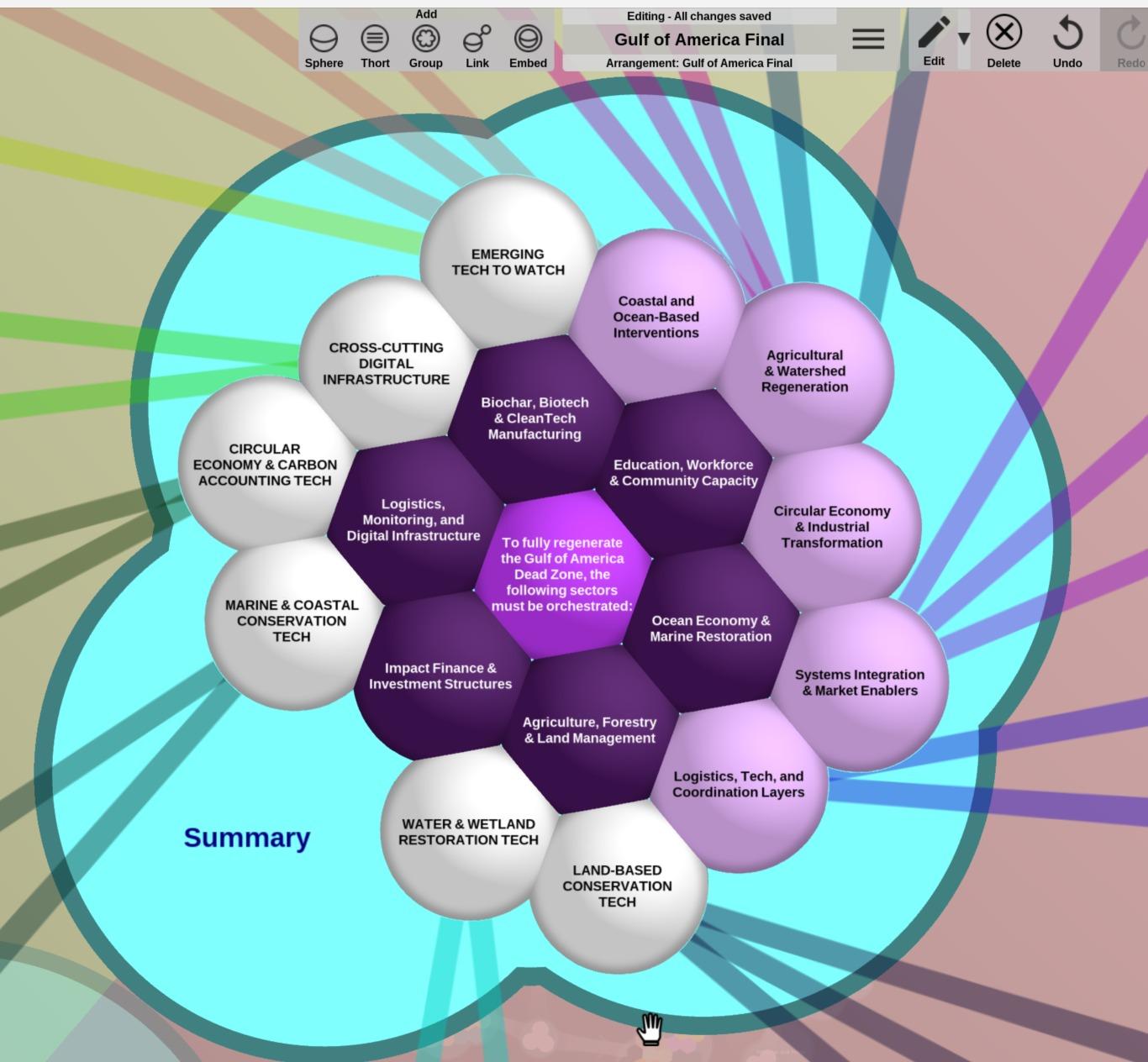
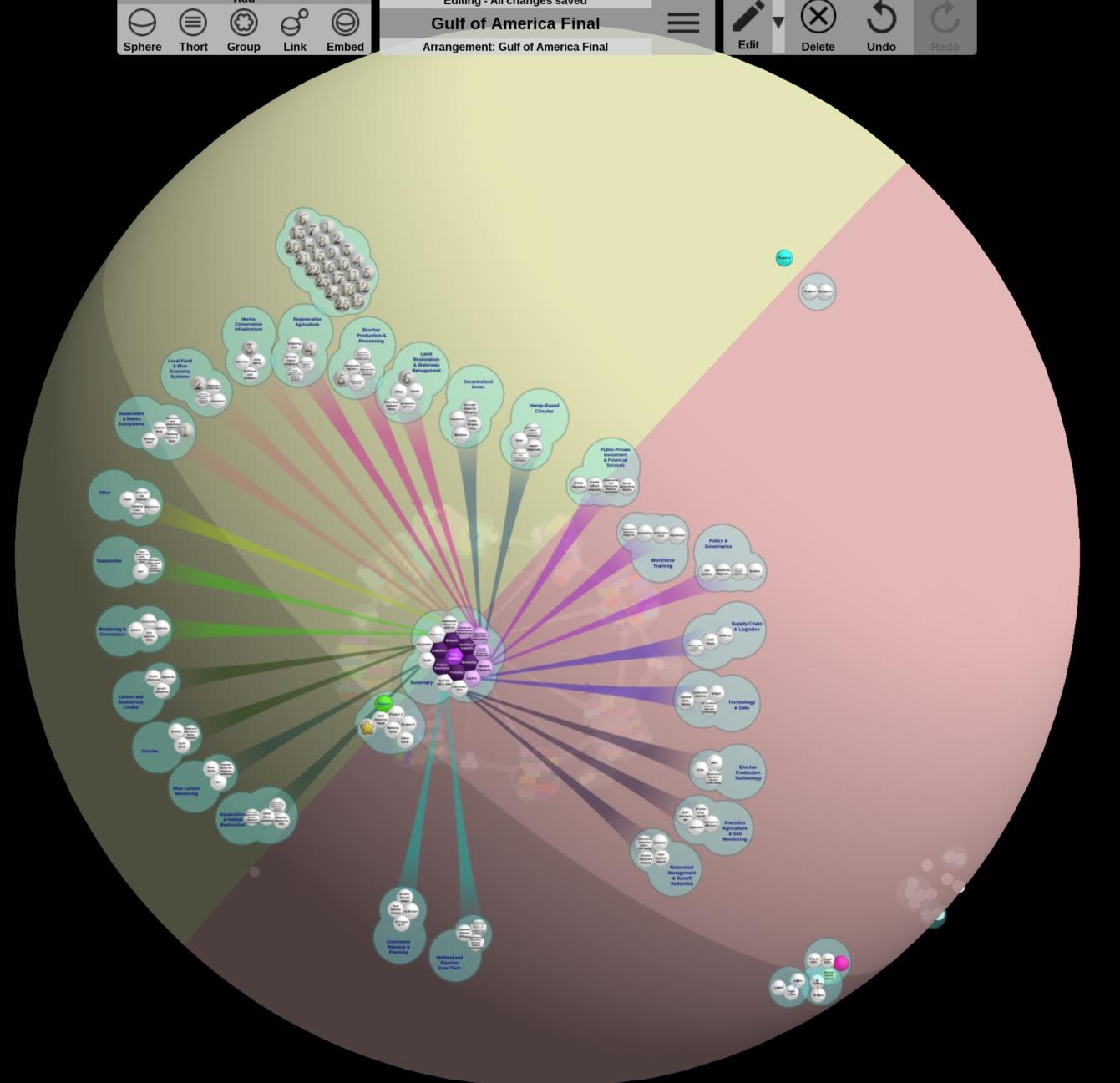
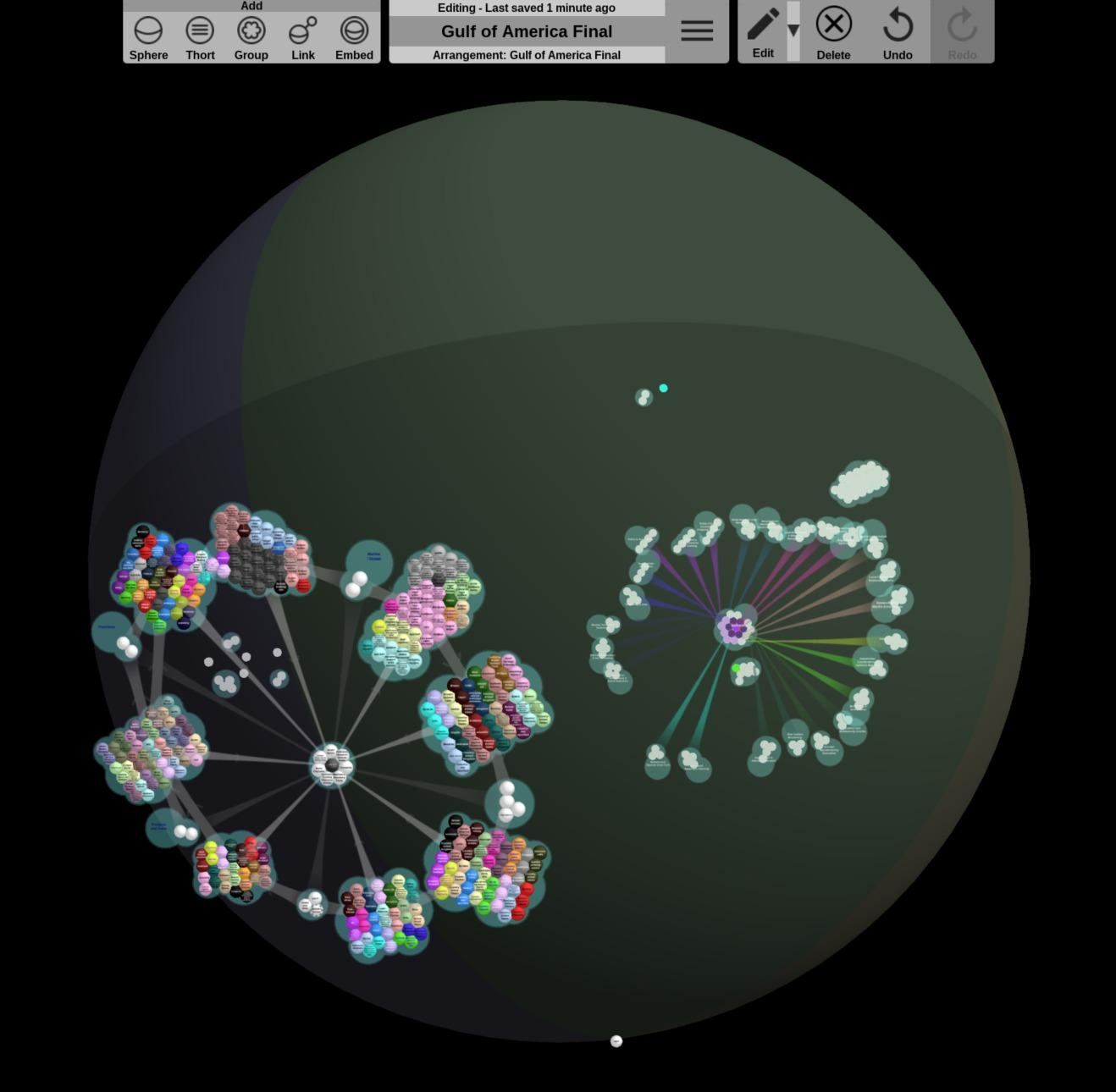
New Group Proposal: Systems Builders & PACIM Designers
18 June 2025 2:52pm
19 June 2025 9:08am
Hi Chad,
Thanks for the text. As I read it, PACIMs play a role in something else/bigger, but it doesn't explain what PACIMs are or what they look like. Now I've re-read your original post, I'm thinking, maybe I do understand, but then I feel the concept is too big ( an entire system can be part of a PACIM ? ) to get going within a WildLabs group. And you want to develop 10 PACIMS within a year through this group? Don't get me wrong, I am all for some systems change, but perhaps you're aiming too high.
19 June 2025 12:19pm
Hello again sir - PACIMs really mean 'projects' is the way I see it. Each part of the acronym can be seen as a project (if you have an assignment to do, you have a project really).
As for your query on 10 projects in 'this' group - I should ask for clarification if you mean particularly acoustics or in any group (I see now this is the acoustics thread after I selected all the groups for this post). If you are asking on acoustics, you're right - I am unsure on 10 as I am not too keen on acoustics yet. If you are asking 10 projects as a whole like 10 projects in the funding and finance group - I believe 10 to be a very reasonable number. Our projects we have co-created are for the most part replicable, rapidly deployable, quickly scalable, fundable through blended finance and more.
Thank you again for the feedback.
19 June 2025 1:43pm
Thank you for your reply, Chad
I meant 10 as a whole, indeed. Perhaps you see your post in one group, but since it is tagged for all groups, I assumed you meant 10 in total.
In your first post you explain PACIM stands for "Projects, Assignments, Campaigns, Initiatives, Movements, and Systems", so I understood it as more than just projects. Obviously, many things can be packed into a project or called a project, but then, what does it mean that 'Projects' is part of the list?
Well, if you think 10 projects is doable, then don't let me stop you.
Oportunidades laborales en investigación en la Amazonía | UTEC - ASRI
12 June 2025 4:56pm
Growing with Nature
29 May 2025 10:14am
Involve our young learners in climate change action.
27 March 2024 3:24pm
31 July 2024 7:38pm
Thank you @loveness
2 August 2024 12:53pm
This is a great paper, Cathy!
3 August 2024 3:17pm
very nice paper Cathy!!!
PhD Advice
22 April 2025 1:34am
4 May 2025 4:14pm
Hi @ethanmarburger, I am probably not the best to give advice here given that it took me nearly two decades to actually finish my PhD, but I'd aim for something that you are really interested in so that you can keep up a high momentum. If you love your project you are more likely to cruise through the 'grind' periods. In terms of networking, WILDLABS is definitely a great place to start! You may well find some connections just looking across the threads here, and reaching out to people that are doing work you are interested in. More broadly, and depending on where you are in the world, you might be able to volunteer or even get some work on projects in your area, which can be a good way to get a foot in the door to larger research projects. You could possibly look at helping out on some analysis of spatial/AI datasets etc, or reach out to not-for-profits and conservation charities and see what they need/you might be able to help with - but try and be as specific as possible so they know straight away what you are after. Just a few quick ideas off the top of my head, and more than happy to discuss further. My best for your search!
Cheers,
Rob
19 May 2025 12:29am
Hi Ethan, It's indeed a competitive area. My advice for you (and anybody else seeking a PhD supervisor)...
- Do background research on each individual potential supervisor and always approach them demonstrating your alignment with their research focus.
- Show that you have read and understood one or two of their key (relevant) papers in your initial email to them.
- Have in mind something relevant to you AND to the potential supervisor, to propose as a topic in your initial email to them. But, remain open to their ideas - there's a good chance they have something that would align with your interests and that would (more) smoothly generate a successful PhD than you might have come up with ;-)
- Write clearly and succinctly.
- Demonstrate enthusiasm and highlight any relevant past experience and engagement in the relevant area (briefly).
- Attach a PDF CV.
- Apply for PhD positions in areas where you are qualified.
- Evidence that you have published a good paper, especially as first author, from your Masters thesis would be a bonus.
This is a time-consuming process. But you may end up spending 3+ years working with this supervisor, and vice versa. It's important for all concerned that you (and they) make a good, informed decision.
Good luck in your search!
Alan.
Maps, Education and Community
21 May 2025 2:39pm
21 May 2025 5:46pm
Fires in the Serengeti: Burn Severity & Remote Sensing with Earth Engine
29 April 2025 6:16pm
1 May 2025 11:44am
10 June 2025 5:39pm
From Field to Funder: How to communicate impact?
16 April 2025 3:51pm
17 April 2025 5:04pm
Great questions @LeaOpenForests !
I don't have concrete answers since I am not a stakeholder in any project in particular. Based on experience with research on the potential for a similar one-stop-shop for science metrics, I would suggest that there is no simple solution: different actors do need and have different views on presenting and viewing impact. This means possible gaps between what one group of actors need and what the other is willing or able to produce. One can hope, search and aim for sufficient overlap, but I don't see how they would necessarily or naturally overlap.
Still, I would guess that if there are dimensions of overlap, they are time, space and actor-networks
28 April 2025 3:18pm
I have posted about this in a different group, but I love boosting the impact of my communication through use of visuals.
Free graphics relating to conservation technology and the environment are available at:
National Environmental Science Program Graphics Library
Graphics below of a feral cat with a tracking collar and a cat grooming trap are examples of symbols available courtesy of the NESP Resilient Landscapes Hub, nesplandscapes.edu.au.
UMCES Integration and Application Network Media Library
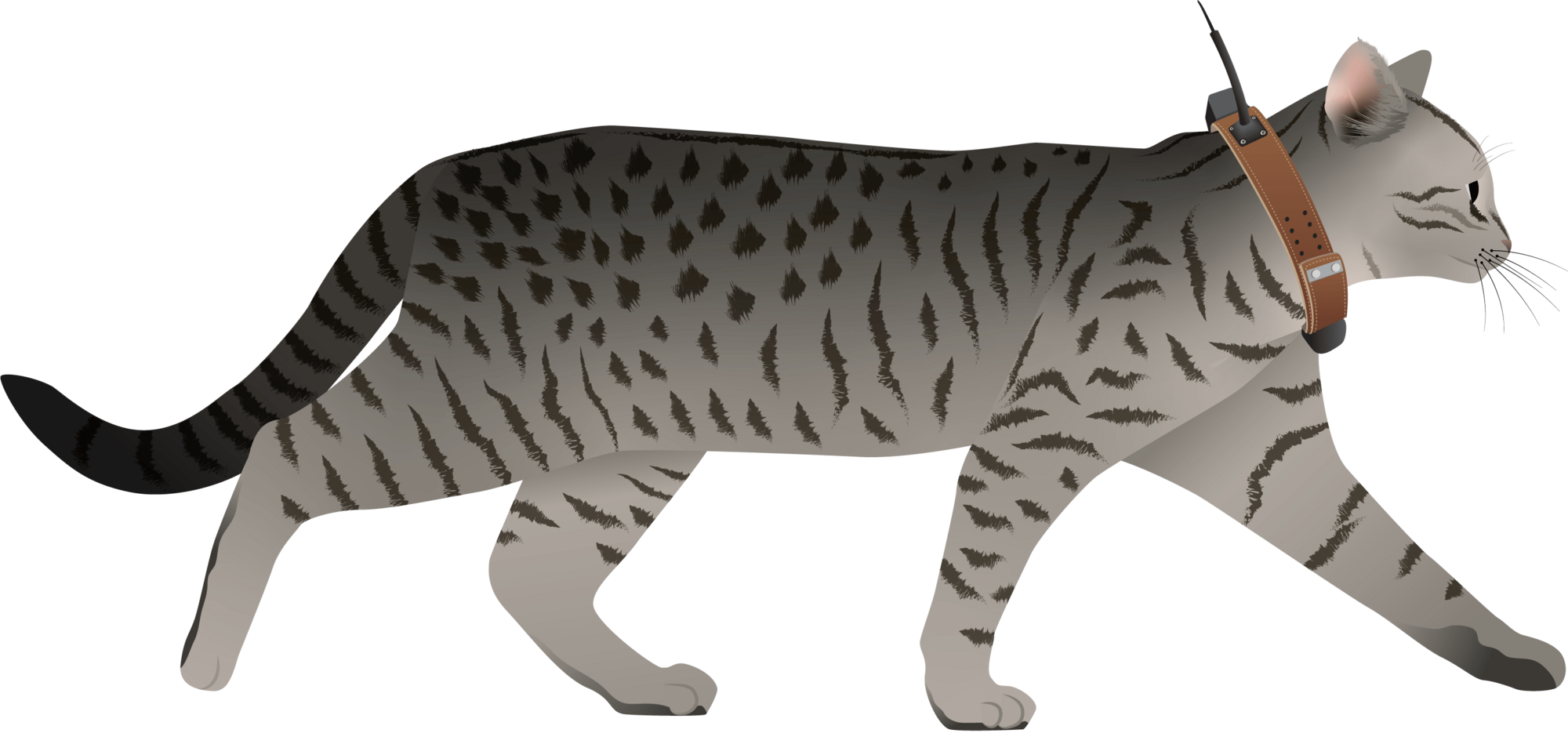
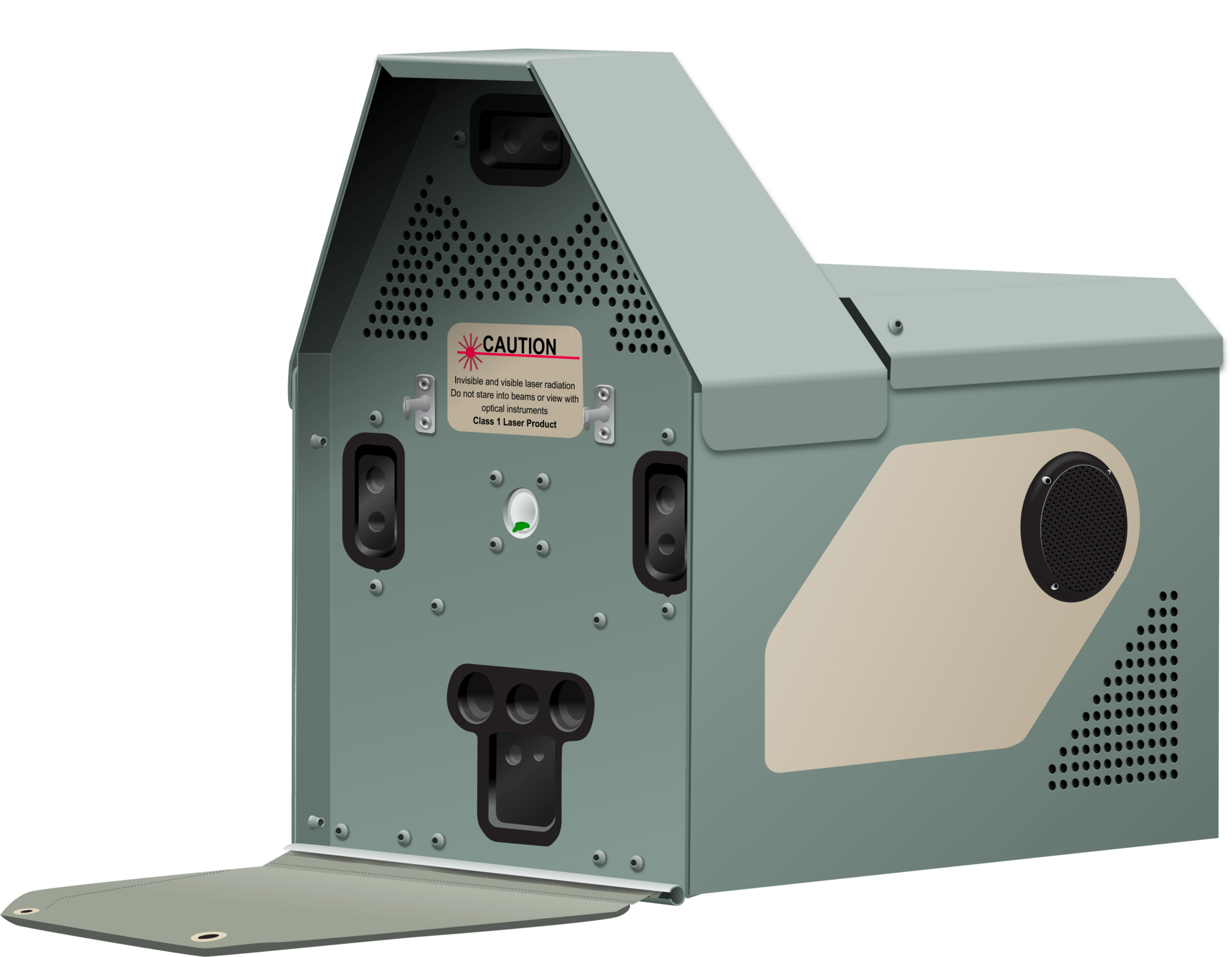
WILDLABS Climate Week Conservation Tech Meetup: Washington, DC
 Alex Rood
and 2 more
Alex Rood
and 2 more
14 April 2025 6:47pm
Beekeeping training center/field school
3 April 2025 10:38am
4 April 2025 2:16pm
Thanks.
Any time you meet someone with internet to invest in the beekeeping industry. Kindly remember my name.
8 April 2025 9:17am
Hi, I'm really interested in your project. If you're open to it, I’d be happy to build and send you a couple of data logger units — free of charge — to help monitor temperature, humidity, pressure, and possibly hive weight using a load cell. I’m also considering adding a simple bee traffic sensor to track how often bees enter and leave the hive. This could help reveal patterns related to foraging behavior or colony stress.
It would also be an interesting use case for using LoRaWAN to send node data to a central gateway. The data could be exported in line protocol format so you can easily import it into InfluxDB or another dashboarding tool if you'd like to visualize it.
I’m quite busy with other projects, but I’d be happy to throw something together to get you started, and I’ll include the source code in case you'd like to modify or expand it in the future. Let me know if this sounds helpful — I'd love to support your work.
Best regards, Travis
8 April 2025 2:36pm
Great dear Travis,
This is a great news and an opportunity to me and my local bee keepers. It really sounds very helpful.
Here is my contacts:
Email: muganyizi@pales.or.tz
Mobile WhatsApp: +255686 821 070.
Kindly spare a time slot so that we dive into details of this for your support and collaboration.
Understanding the 2025 US Tariffs: Risks for Clean Tech and Conservation Progress
7 April 2025 12:22pm
Multiple grants
28 March 2025 1:42pm
Cloud-Native Geospatial Conference
26 March 2025 3:40pm
AI Weather Quest
25 March 2025 5:07pm
Compute for Climate Fellowship 2025: Empowering Climate Tech Startups with Cloud Computing and AI
22 March 2025 4:13pm
DC Climate Week
19 March 2025 4:06pm
Utilizing Artificial Intelligence to Reduce the Impact of Climate Change on Wildlife
10 March 2025 5:42pm
Saving Peatlands, Securing Our Climate Future
21 February 2025 8:32am
Climate changes in wildlife protected areas
14 August 2024 11:26am
14 August 2024 5:27pm
Hi Norah!
This is a great concern! Kudos!
Climate change data especially for such a long time can help us answer a lot of questions including the few listed below:
- How has the climate variability affected the trend of species in the ecosystem? (You can choose to study a specific specie of animal or plant) and respond on their increase and (or) extinction.
- How has climate variability affected or supported the survival rate of introduced species?
- Climate variability is one among many factors of invasion, how is the invasion rate in your ecosystem?
- You can also answer on the general topic of your ecosystem’s health with the data!
I would love to read a paper from the data you have! Very resourceful!
Break the leg!
14 August 2024 8:15pm
Great minds think alike. In awe that some of our questions synchronized🤭...thanks so much tina♥️
11 February 2025 5:17pm
I agree Adventina. I am also interested in "How has the climate variability affected the trend of BAT species in the ecosystem? and respond on their increase and (or) extinction.
@Norah, I am also interested in the findings regardless of the species you pick. In 2022 - 2023 we created a climate database for an NGO project in Amhara, Ethiopia. It would be cool to come up with a climate variability databasa for the park.




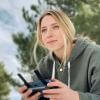
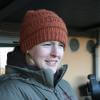


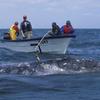


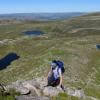




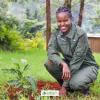






















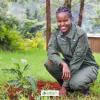

















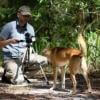




5 August 2025 7:27pm
If you're curious about InVEST I just created a page in "The Inventory" (see link on this page) with some resources and just wanted to hlighlight some potentially interesting models that are worth having a look at!
Crop Pollination: this model focuses on wild pollinators providing an ecosystem service. The model estimates insect pollinator nest sites, floral resources, and flight ranges to derive an index of pollinator abundance on each cell on a landscape. If desired, the model can creates an index of the value of these pollinators to agricultural production, and attributes this value back to source cells.